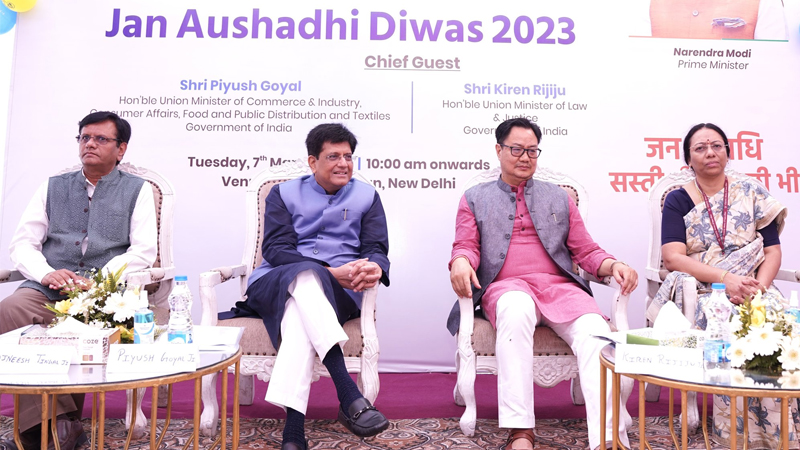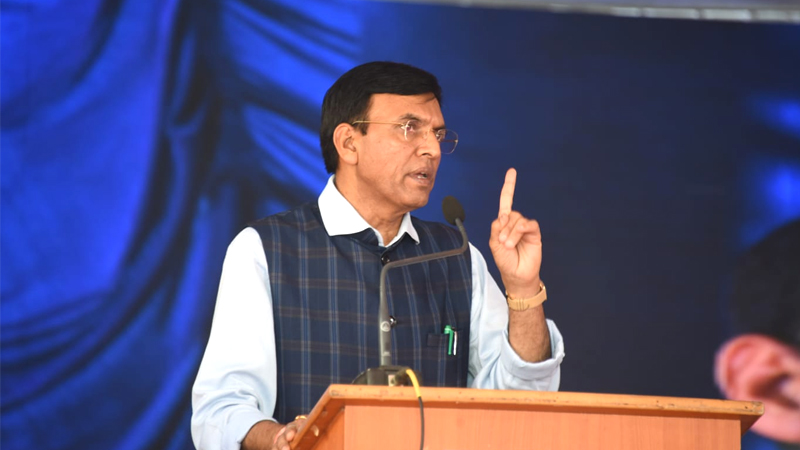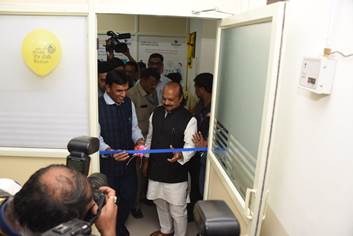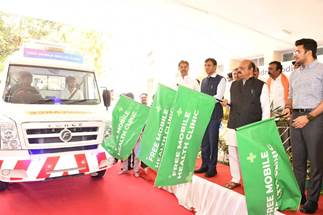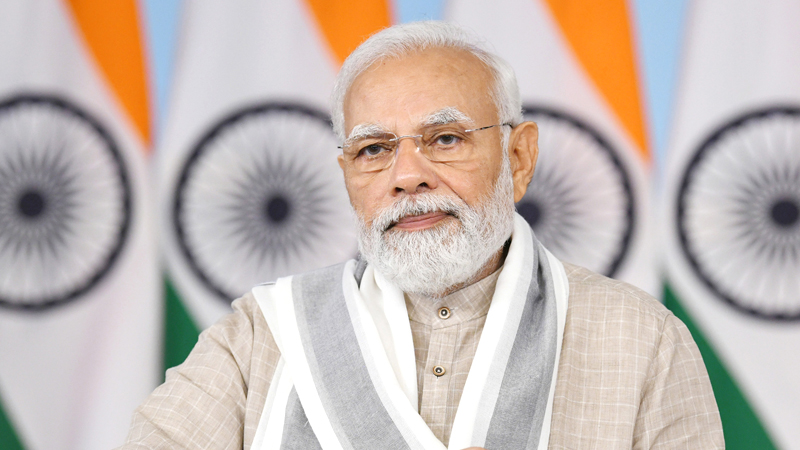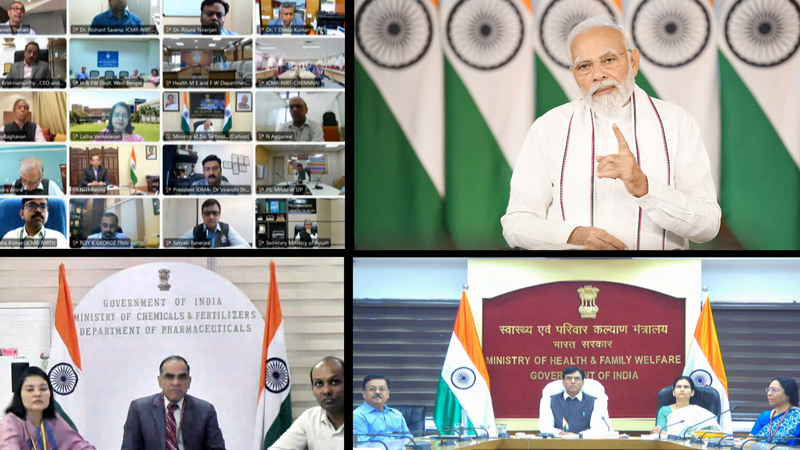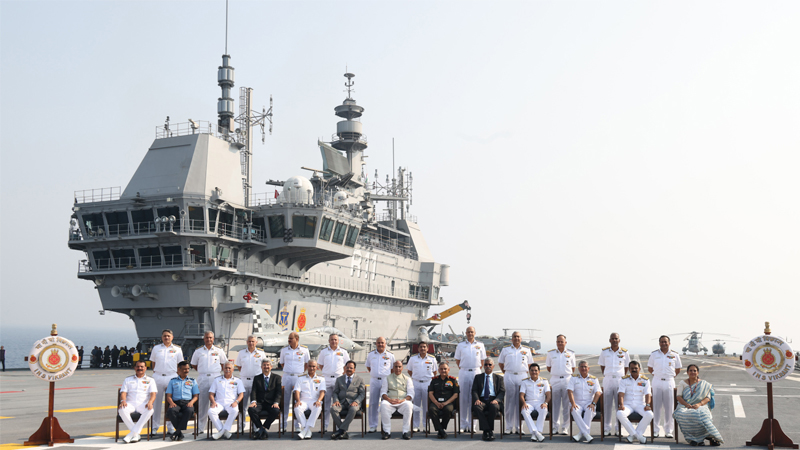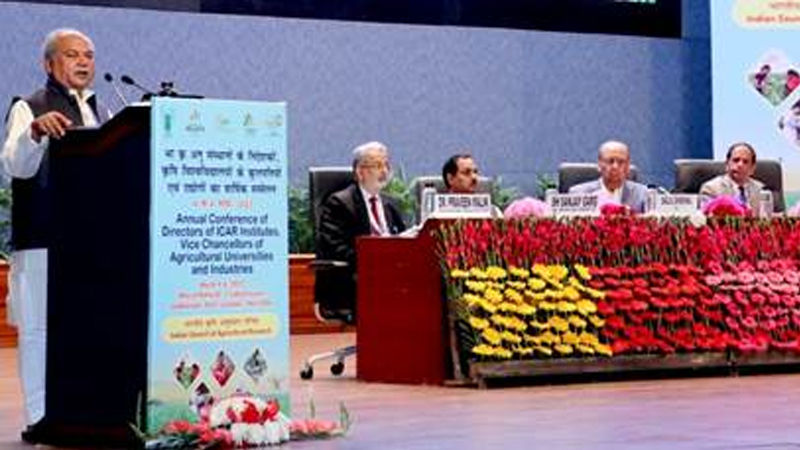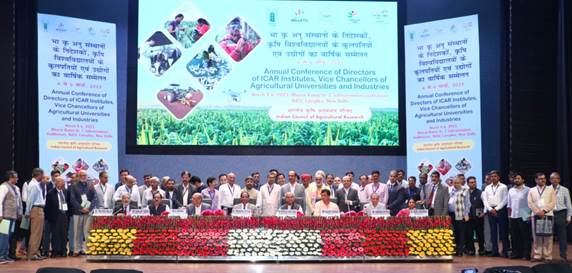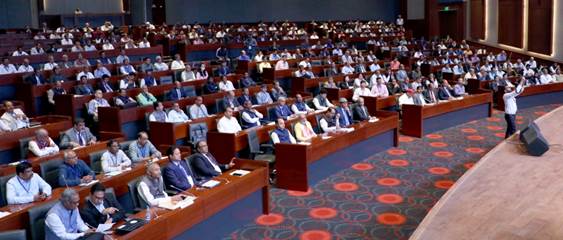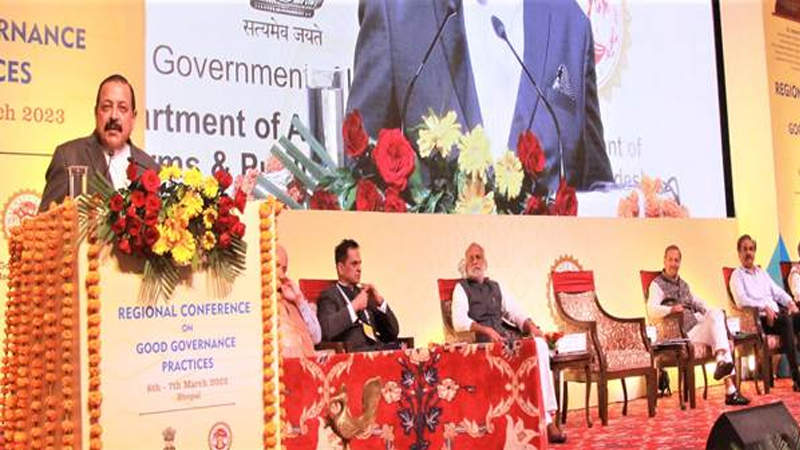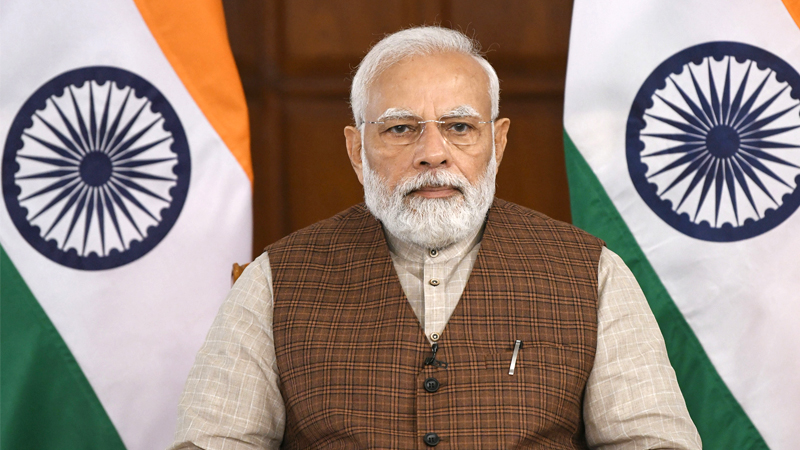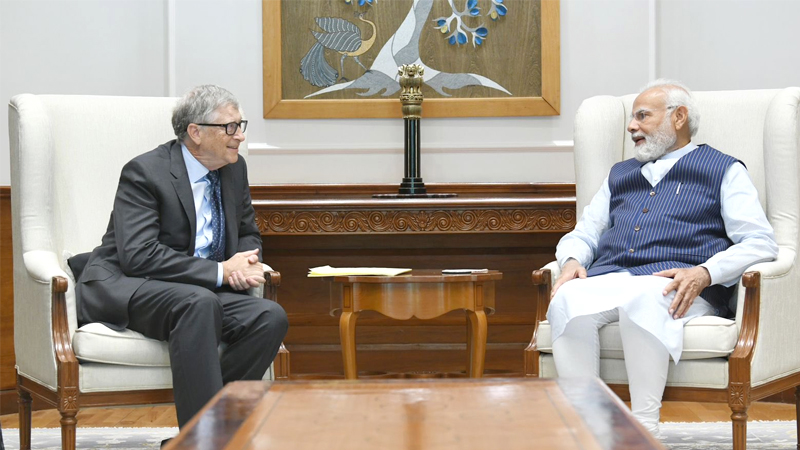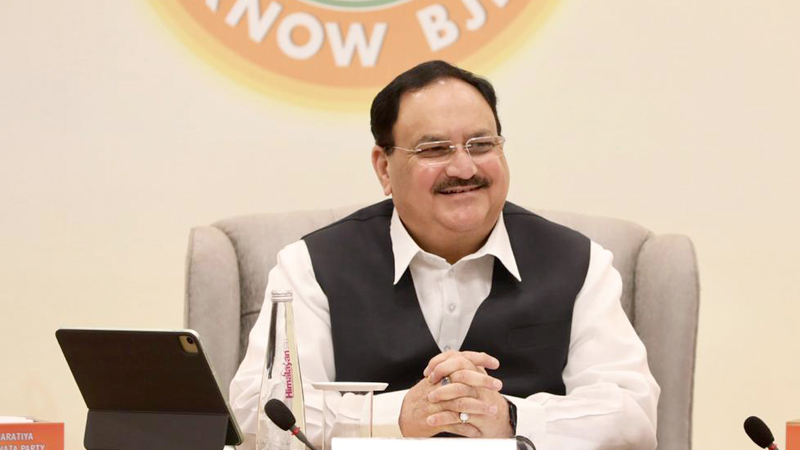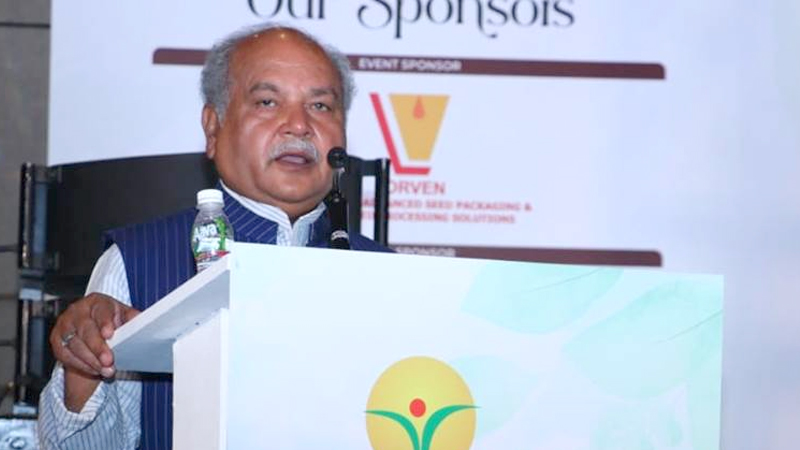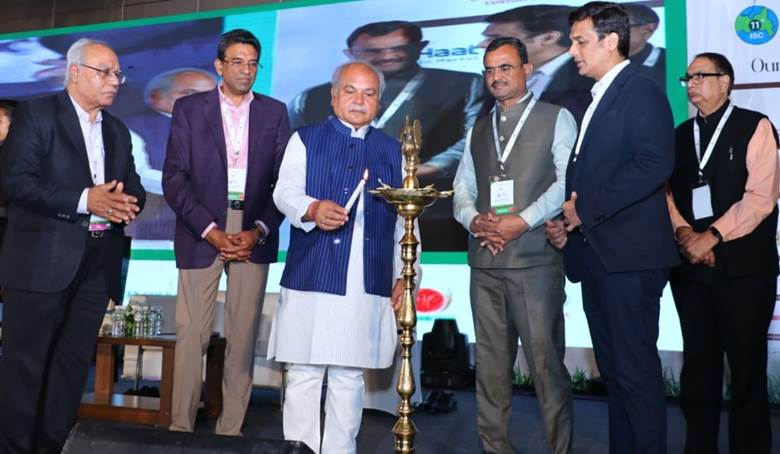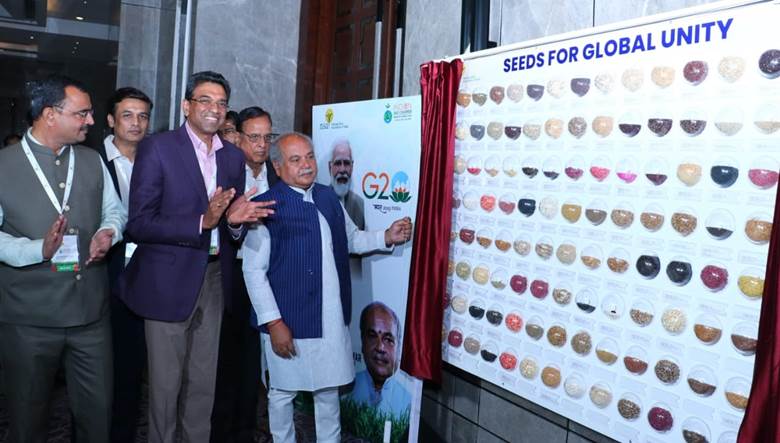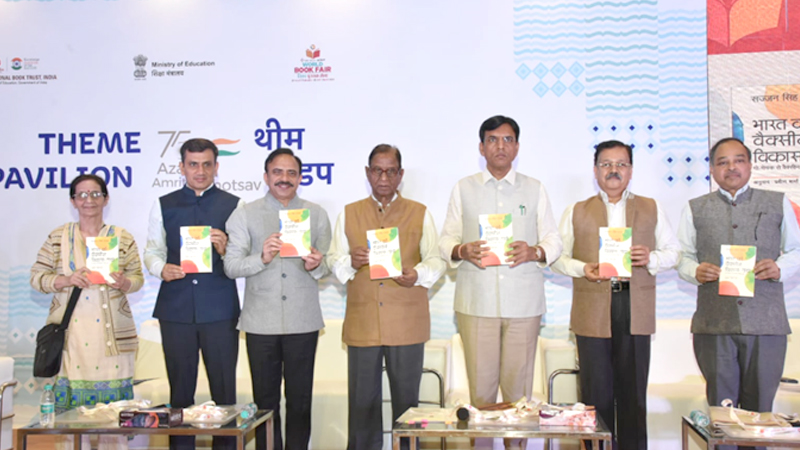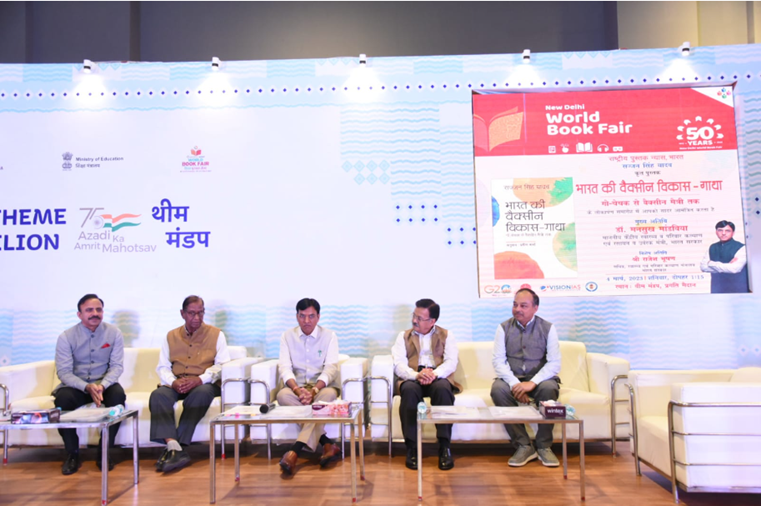Union Minister of State (Independent Charge) Science & Technology; Minister of State (Independent Charge) Earth Sciences; MoS PMO, Personnel, Public Grievances, Pensions, Atomic Energy and Space, Dr Jitendra Singh today emphasized on technology-driven e-Governance for reaching last mile.
Addressing the Inaugural Session of the 2nd Regional Conference on Good Governance in Bhopal, Dr Jitendra Singh said, the Vision India@2047 on Governance is truly e-Vision India@2047 marked by saturation and benchmarking of high-quality e-services in tune with Prime Minister’s “Panch Pran” goal for the next 25 years elucidated in the Union Budget.
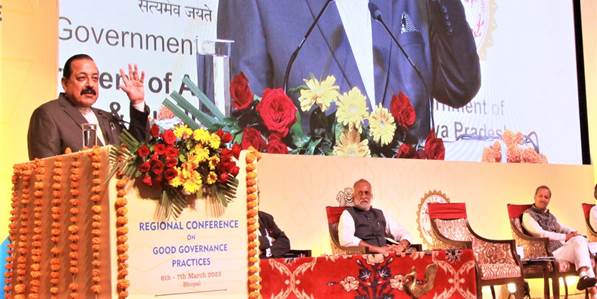
Dr Jitendra Singh underlined that this conference comes at a crucial time, when India is taking Multi-Sectoral Stand on key issues concerning several Central Ministries as the President of the G20 Working Group Meetings and Sideline Events ahead of the Main Summit. The Minister said, it is also an occasion to showcase India’s achievements in many fields apart from its globally recognized Soft Power. He said, India is gearing up fast for achieving the vision of a developed India by 2047 with speed and scale facilitated by digital transformations in e-Governance.
Dr Jitendra Singh said, under the leadership of Prime Minister Narendra Modi, the government is taking several strides in the field of IT and new age technologies for better delivery of governance to citizens. He said, Digital innovation will play an important part in the next decade for governance to transform India into a digitally empowered society and knowledge economy.
Dr Jitendra Singh said, we drew inspiration from the words of Prime Minister who stressed on the role of technology in making governance and justice delivery systems reach the poorest of the poor, the marginalized and women living in the hinterland. He said, the Government of India has preempted the need of Information Technology and inculcated the same in each and every aspect of governance and has committed to augment inclusive growth across different sectors. The vision of Prime Minister of India’s Techade can be realized through a vigorous and all-pervasive digital governance push, the Minister added.
Dr Jitendra Singh pointed out that as India celebrates its 75th year of Independence as Azadi ka Amrit Mahotsav, the Prime Minister has given a clarion call for adoption of Next Generation Reforms by bridging the gap between government and citizens and this vision of Next Generation administrative reforms of the PM has been diligently translated into reality by DARPG. Secretariat Reforms, Swachhta Campaigns, Benchmarking of Governance and Services, Redressal of Public Grievances & Improving Service Delivery, recognizing meritocracy and replication of good governance practices form the core of India’s good governance model.
Dr Jitendra Singh said, the Regional Conference on Good Governance Practices is an effort to bring the Government and Citizens closer through various administrative reforms at the Centre, State and District level. It is being factored by use of digital technology pursuing next generation reforms and innovations with policy objective of “Maximum governance, Minimum Government”, the Minister added.
Secretary, DARPG, Shri V Srinivas said, the DARPG is pursuing integration of State and District Portals with CPGRAMS through web API’s so that grievances can be redressed in a seamless manner. He said, this is in accordance with the Government’s policy for One Nation-One Portal and considerable amount of work has been completed in this regard. The CPGRAMS has grown in size and quality, integration with multiple grievance redressal platforms functioning in India can provide timely and quality grievance redressal to citizens. Intelligent Grievance Management Dashboard leveraging AI/ML technology has been developed, and a Data Strategy Unit has been set up for analytical insight enabling strategic decision making and policy reforms. This will enable significant improvements in quality of grievance redressal. Besides, Feedback Call Centre for CPGRAMS has been established to collect feedback directly from the citizens.
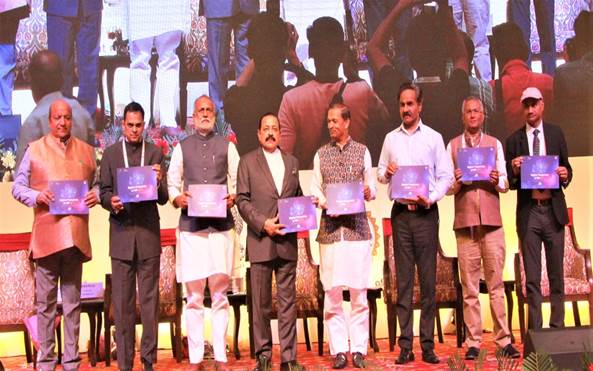
Digital Transformation of Institutions is enabled by adoption of office automation – e-Office, delayering, delegation of financial powers, digital central registration units and adoption of desk officer system. Fully Digital Central Secretariat, Digital State Secretariats, Digital District Collectorates represent the Digital Transformation of Institutions. There is a need to constantly upgrade e-Office versions and equip them with data analytics to ensure increased efficiency in decision making.
e-Office was initiated with the objective of improving the Government functioning by inculcating more efficient, effective, transparent and standard office procedures. Thus increasing the accountability and responsibility in the Inter-Government and Intra-Government transactions leading to an efficient Government administration and public delivery system. It is a complete digital work place solution for Government offices and is based on Central Secretariat Manual of e-Office Procedure (CSMeOP), formulated by Department of Administrative Reforms and Public Grievances (DAR&PG). eOffice-eFile application (eFile v7.0) was conceptualized, re-architected, developed and launched by National Informatics Centre (NIC) in June 2020, by adopting the latest tools and technologies.
Department of Administrative Reforms & Public Grievances (DARPG) had constituted the National e-Governance Service Delivery Assessment (NeSDA) in 2019 as part of its mandate to boost the e-government endeavors and drive digital government excellence. The biennial study assesses States, Union Territories (UTs), and focus Central Ministries on the effectiveness of e-Governance service delivery. NeSDA helps the respective governments improve their delivery of citizen centric services and shares best practices across the country for all States, UTs and Central Ministries to emulate.
The Special Campaign 2.0 on Swachata and reducing pendency in Government offices was organized from 2nd -31st October, 2022 in all Central Ministries/Departments and their attached/subordinate offices/ PSUs/ autonomous organizations. DARPG issued the guidelines and coordinated the campaign across the Central Ministries and their offices through real-time monitoring on a dedicated portal www.pgportal.gov.in/scdpm22.
To encourage replication of good governance practices, DARPG is conducting a series of 13 National Good Governance Webinars, one Webinar a month, over the year 2022-23, commencing from on 28th April, 2022.
One of the functions of DARPG is to showcase the select PM award and e- Governance award winning initiatives to present their innovation to all the central ministries, state and union governments and academicians for dissemination of good governance practices with a view to sharing of experience with each other and replication elsewhere.
The changes in Government of India towards improved quality of governance have to be reflected in States and Districts. The aim is to provide governance which is transparent and in adherence to established rules and procedures. This alone will make the march to New India successful.


